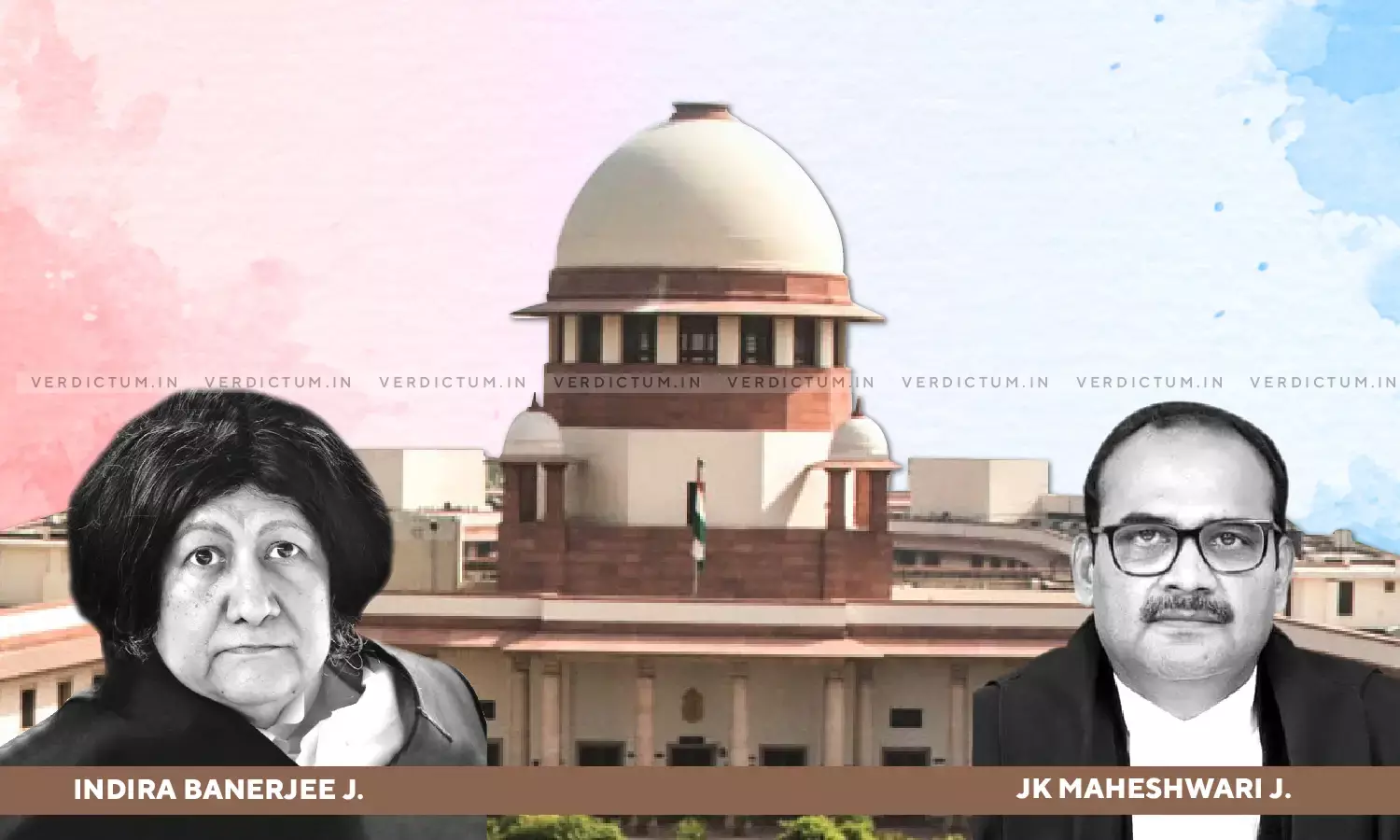Retrospective Environmental Clearance Can Be Granted In Exceptional Circumstances- Supreme Court Reiterates

The Supreme Court has observed that the Environment Protection Act does not prohibit ex post facto environmental clearance and it can be granted in exceptional circumstances taking into account all relevant environmental factors.
The Bench of Justice Indira Banerjee and Justice JK Maheshwari also observed –
"Ex post facto environmental clearance should ordinarily not be granted routinely, but in exceptional circumstances taking into account all relevant environmental factors. Where the adverse consequences of denial of ex post facto approval outweigh the consequences of regularization of operations by grant of ex post facto approval, and the establishment concerned otherwise conforms to the requisite pollution norms, ex post facto approval should be given in accordance with law, in strict conformity with the applicable Rules, Regulations and/or Notifications."
The Bench also observed that Courts cannot be oblivious to the economy or the need to protect the livelihood of hundreds of employees and others employed in the units and dependent on the units for their survival.
Advocates Nuli & Nuli appeared for the Appellant before the Apex Court.
The Court upheld the order of the National Green Tribunal which had dismissed a plea seeking direction for the closure of a Common Bio-Medical Waste Treatment Facility on the ground of alleged non-compliance with the provisions of the Environmental Impact Assessment Notification 2006.
The Court also observed, "In a given case, the deviant industry may be penalised by an imposition of heavy penalty on the principle of 'polluter pays' and the cost of restoration of environment may be recovered from it."
The Bench further also reiterated that the Environment Protection Act does not prohibit ex post facto Environmental Clearance, and thus observed –
"Some relaxations and even grant of ex post facto EC in accordance with law, in strict compliance with Rules, Regulations, Notifications and/or applicable orders, in appropriate cases, where the projects are in compliance with environment norms, is not impermissible."
"Ex post facto EC should not ordinarily be granted, and certainly not for the asking. At the same time ex post facto clearances and/or approvals cannot be declined with pedantic rigidity, regardless of the consequences of stopping the operations," the Court added.
The Court agreed with the finding of the NGT that when the Bio-Medical Waste Treatment facility of the Appellant was being operated with the requisite consent to operate, it could not be closed on the ground of want of prior Environmental Clearance.
The Bench thus held that the closure of the facility only on the ground of want of prior Environmental Clearance would be against public interest and dismissed the appeal.
Cause Title – D. Swamy v. Karnataka State Pollution Control Board & Ors.
Click here to read/download the Judgment
With PTI Inputs

